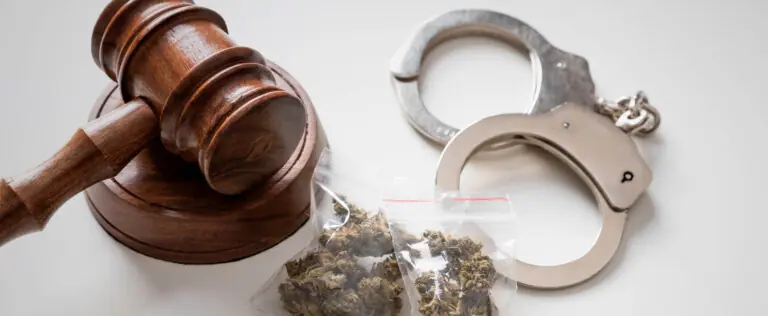In 2024, Florida is at a decisive moment regarding its marijuana laws. Currently, recreational marijuana use is illegal, and the state only permits the use of medical marijuana. However, a vote on a state constitutional amendment scheduled for November could allow recreational use for individuals aged 21 and over. If passed, this would allow Florida to join the growing number of states that have recently decriminalized the use of recreational marijuana. Here’s what you need to know about the current laws and potential changes.
What Are the Current Laws on Recreational Marijuana Use in Florida?
In Florida, marijuana is considered a controlled substance and subject to regulations based on this classification. Recreational marijuana use is currently prohibited under state law. Exceptions exist for the approved medical use of marijuana by certain patients. In addition, several local municipalities have adopted ordinances that decriminalize the possession of small amounts of marijuana. These rules aim to reduce the legal consequences associated with minor marijuana offenses and reflect a growing trend towards more lenient policies at the local level, despite the statewide prohibition.
Medical Marijuana in Florida
Medical marijuana is legally accessible in Florida for individuals who have been diagnosed with qualifying medical conditions. To participate, patients must first receive a recommendation from a state-approved physician and then register with Florida’s Medical Marijuana Use Registry. Once registered, patients will receive a Medical Marijuana Use Registry (MMUR) card, which will permit them to purchase medical cannabis from a Florida Medical Marijuana Treatment Center (MMTC). These licensed dispensaries are the only places where medical marijuana can be legally purchased. If you are in possession of any marijuana purchased from any other source, you can be found guilty of illegal cannabis possession even if you have a valid MMUR card.
The list of qualifying medical conditions includes, but is not limited to, cancer, epilepsy, glaucoma, HIV/AIDS, Crohn’s disease, Parkinson’s disease, multiple sclerosis (MS), and post-traumatic stress disorder (PTSD). Chronic nonmalignant pain and any condition of the same kind or class as those listed are also eligible for treatment with medical marijuana. The state continually updates the list of qualifying conditions and the forms of cannabis allowed, ensuring that the program adapts to new medical insights and patient needs.
Florida law allows registered patients to possess and purchase medical marijuana in various forms, including oils, sprays, tinctures, edibles, and vapes. The state has set specific possession limits for amounts that an individual may purchase at any one time. This program is governed by the Florida Department of Health, which oversees the licensing of dispensaries and the regulation of medical marijuana products, ensuring safety and compliance with state laws.
Penalties for Marijuana Law Violations
In Florida, the possession of marijuana is currently illegal unless it is medical marijuana obtained from a licensed MMTC. However, several counties and municipalities, including Miami-Dade, Broward, Palm Beach, Tampa, and Orlando, have decriminalized the possession of small amounts of marijuana. In these areas, possessing 20 grams or less typically results in a fine and may require attendance at a drug education program or community service. Penalties escalate with subsequent offenses.
Outside these specific jurisdictions, possession of up to 20 grams can lead to a first-degree misdemeanor charge, punishable by a fine of up to $1,000 and one year in jail. Possessing more than 20 grams becomes a felony, with penalties including up to $5,000 in fines and five years in prison. Severe penalties apply for larger quantities: possession of more than 25 pounds is considered drug trafficking, a serious felony. For instance, possession of up to 2,000 pounds results in a mandatory minimum of 3 years in prison and a $25,000 fine, escalating significantly with the amount seized.
Furthermore, Florida law prohibits the cultivation of marijuana plants and the possession of marijuana derivatives such as hashish and THC concentrates, including vape cartridges and oils. These offenses can lead to third-degree felony charges, underscoring the strict stance Florida maintains on marijuana outside of regulated medical use.
2024 Statewide Ballot to Legalize Marijuana
In November 2024, Florida voters will have the opportunity to decide on a pivotal constitutional amendment aimed at legalizing recreational marijuana use for adults aged 21 and over. This proposed amendment seeks to permit the possession, purchase, and personal consumption of marijuana products and related accessories. If passed, adults could legally engage in activities such as smoking, ingesting, or using marijuana in other forms for non-medical purposes.
The amendment also proposes a framework for the regulation and commercial distribution of marijuana. It would authorize medical marijuana treatment centers, along with other state-licensed entities, to acquire, cultivate, process, manufacture, sell, and distribute marijuana products. This move towards legalization is intended to shift the control of marijuana from the black market to regulated businesses, potentially increasing state revenues through taxation and decreasing the costs associated with enforcing current prohibitions.
The outcome of this vote could significantly alter the landscape of marijuana use in Florida, making it the latest state to embrace a more liberal approach towards marijuana policy in the United States.
How We Can Help If You Are Charged with Marijuana Possession
At Van Elswyk Law, we understand the complexities of Florida’s marijuana laws and are committed to defending your rights. If you’ve been charged with marijuana possession, our experienced team will provide the robust defense you need to challenge those charges. We’ll work to seek the best possible outcome for your case. Contact us today for a consultation, and let us help you navigate through this challenging time.

